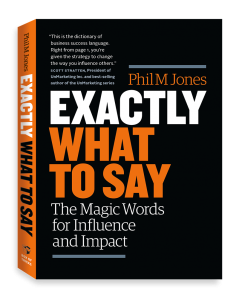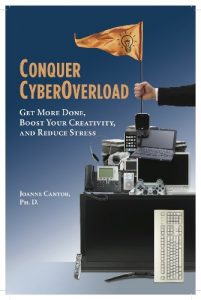From an early age you were told not to lie. Yet we all do it to some degree. And maybe that’s not all bad. When you look at kids who lie, the research reveals some very interesting things – and we will explore that in today’s episode.
Also, how many times have you looked back on a conversation and wish you had said something different – something brilliant? Well now you can. Listen to my guest Phil M. Jones, author of the book Exactly What to Say: The Magic Words for Influence and Impact . Phil is one of the world’s top sales trainers and he has researched and studied what words and phrases work in what situations to help you get the outcomes you want in all areas of your life.
Plus, it is important to maintain a good credit score – but you might be surprised to learn what things do and don’t affect it. I’ll explore that as well.
And, do you know what “cyber overload” is? It’s being so distracted by all your devices that you can’t focus on what’s important. It is a huge problem and it leaves many of frustrated that we can’t get things done because of all the disruption from technology. Joanne Cantor, professor emeritus at the University of Wisconsin and author of the book Conquering Cyber Overload reveals the toll this problem is taking and what we can all do to stop being controlled by technology.
Are you a subscriber to this podcast? When you do, the episodes get delivered to you automatically – so you never miss one. To subscribe on iTunes go to: https://itunes.apple.com/us/podcast/something-you-should-know/id1150124880
RESOURCES FOR THIS EPISODE:
Source for story about lying: http://www.parentdish.com/2010/05/18/lying-may-be-good-for-kids-study-suggests/
Amazon link for Phil Jones’ book, Exactly What To Say: http://amzn.to/2vGIR2R
Phil Jones website: http://www.philmjones.com
Amazon link for Joanne Cantor’s book, Cyber Overload: http://amzn.to/2x6YxQC
Source for story about your credit score: http://www.cheapism.com/blog/3798/credit-score-myths





